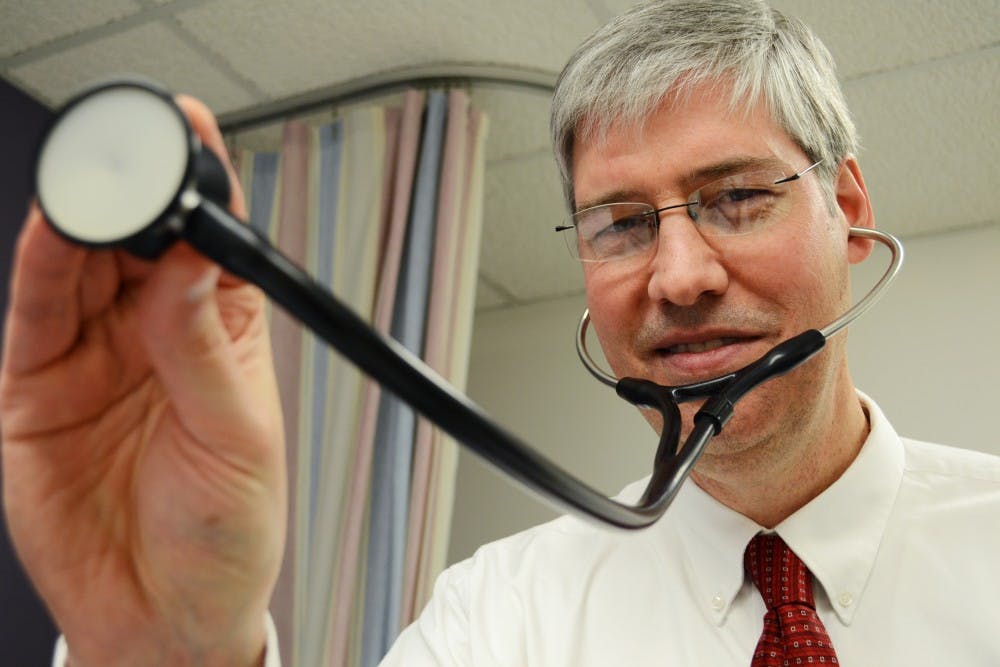Dr. Timothy Daaleman, vice chairman of the UNC Department of Family Medicine, said doctors previously preferred working in private practice.
“For several years people liked the autonomy — that was one of the attractions for medicine,” he said.
But digitized health care records and general uncertainty about the industry has lured more doctors to larger companies, said Elaine Ellis Stone, spokeswoman for the N.C. Medical Society.
“The Affordable Care Act is charting some new waters, and nobody knows how it is going to play out,” she said.
Daaleman also said that for years, doctors were compensated based on the amount of care provided.
“There is not a disincentive for me to do less — in fact, the incentive is for me to do more,” Daaleman said.
But changes by both government and private insurers, such as paying doctors per patient rather than per procedure, are designed to compensate doctors for quality of care, he said.
Increased efficiency
Insurance providers are also assuming a new role in the changing industry.
“The collaboration between health insurers and the provider community has increased dramatically,” said Brad Wilson, president and CEO of BlueCross BlueShield of North Carolina.
After the Affordable Care Act passed, Wilson, who serves on the UNC-system Board of Governors, met with Bill Roper, CEO of the UNC-CH Health Care system, to discuss lowering costs.
“We said, ‘What can we do together to really make a step forward in health care?’” Wilson said.
The result was Carolina Advanced Health, a joint partnership between UNC Health Care and BlueCross BlueShield, which puts physicians, insurers and specialists in one clinic.
To get the day's news and headlines in your inbox each morning, sign up for our email newsletters.
“Think of it as a one-stop shop in terms of medical professionals, all available under one roof,” Wilson said.
Nikki Hudson, practice manager at the clinic, said it is working to reduce costs and increase efficiency.
“We order that test before you go and doctors agree to do the leg work with us, and you only have to go once,” she said.
The composition of medical staff has also been altered as a way to encourage efficiency.
Kevin Tate, senior analyst at UNC Family Medicine, said that in the past decade, the makeup of the staff at the clinic has changed from nurses and nursing assistants to medical assistants.
“Medical assistants are trained not only in the clinical aspects,” he said. “They are trained to do vital signs, they can diagnose for medication under the supervision of physicians.
“They are also trained to do the front end of care, too. They understand insurance. They know scheduling and billing.”
Tate said this model is more efficient and will attract prospective doctors to the profession.
“I think it improves the level of support that they have,” he said. “It makes it easier for the provider to be more productive.”
Despite the evolving nature of the industry, Daaleman said he thinks there will still be an attraction to the profession.
“It gets back to why folks get into medicine,” he said. “If they want to help, I think there will always be young folks out there.”
Contact the desk editor at state@dailytarheel.com.




